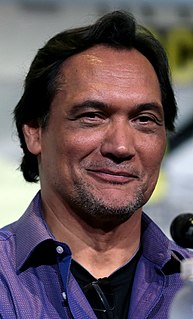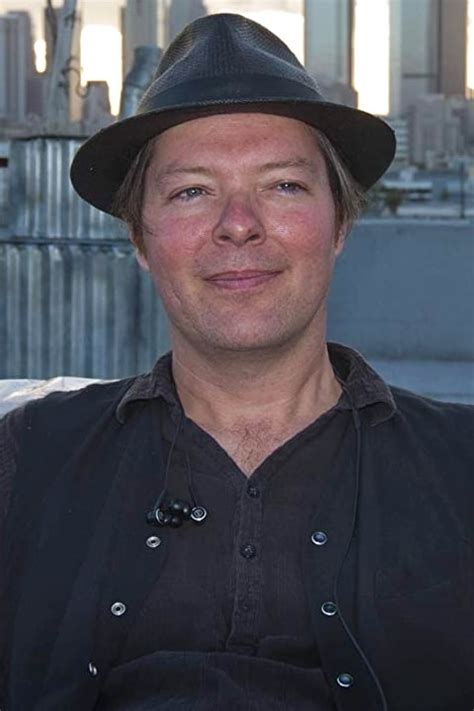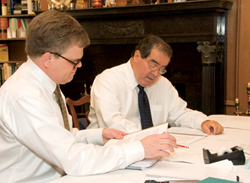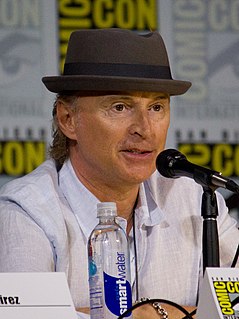A Quote by Ethan Hawke
The script [of Regression] wasn't the draw for me. It was largely Alejandro [Amenabar] and his way of talking. To hear him talking about the script was way more interesting than the script. He wrote it, and so, English is his second language. It's an interesting thing. I've had that before. I was directed by Alfonso Cuarón before, too. It's always interesting when you're being directed by somebody like that. So much of directing is about communication, and finding the right words, and what it means, and how to convey certain emotions and ideas.
Quote Topics
About
Always
Before
Being
Certain
Communication
Convey
Directed
Directing
Draw
Emotions
English
Finding
Had
Hear
Him
His
His Way
How
Ideas
Interesting
Interesting Thing
Language
Largely
Like
Me
Means
More
Much
Regression
Right
Right Word
Right Words
Script
Second
Somebody
Talking
Than
Thing
Too
Way
Way Of Talking
Words
Wrote
Related Quotes
I'm always sitting down and talking to people that are doing independent features. It depends on the project and the quotient of the people that are involved. There are a lot of different reasons [to do something], like a particular script that resonates with me, in a particular way. It may not so much even be about the part, but what the script has to say.
I just thought that was so interesting, that people that deal with bodies on a much more corporeal level, like the attendants, had a whole different set of criteria than doctors, and that they had this secret knowledge of something. I thought it was strange and interesting, so I took it to my script.
The criteria [to take or refuse the role] is that I would love to have some kind of dialogue or communication with the director. I need to understand that we can communicate and that we like communication. That's something I have to have a strong feeling about. Secondly, I have to find the script intriguing or interesting. I don't have to understand the whole script, but I do have to find it intriguing. If those two things are present, that would probably be a yes.
I was approached by the filmmakers. I didn't know much about the project ["Selling Isobel"], and the more we talked, the more they started to confide in me. I read the script and thought it was really interesting, and then a week later I discovered that this wasn't just any old script, this was actually Frida's [Farell] story and she was trusting me to tell it. I felt very privileged.
A word about 'plain English.' The phrase certainly shouldn't connote drab and dreary language. Actually, plain English is typically quite interesting to read. It's robust and direct-the opposite of gaudy, pretentious language. You achieve plain English when you use the simplest, most straightforward way of expressing an idea. You can still choose interesting words. But you'll avoid fancy ones that have everyday replacements meaning precisely the same thing.
hen Baillie [Walsh, writer and director] wrote the movie for me I wasn't doing what I'm doing today, so when we actually came to make the movie it seemed silly to change it. But who knows? That's the way things go. What was interesting for me - and what was always interesting in the script - was that you've got someone who appears to have everything, or at least has the opportunity to have everything, and he's f**ked it up, or lost it.
I would never talk just to be social. Now, to sit down with a bunch of engineers and talk about the latest concrete forming systems, that's really interesting. Talking with animal behaviorists or with someone who likes to sail, that's interesting. Information is interesting to me. But talking for the sake of talking, I find that quite boring.
The thing I always guard against when I'm talking to people I'm working with about a script is that there's a thing I don't like and it's called "talk story." It's when you're talking about the story; the characters are tasked with talking about the story instead of allowing the audience to experience the story.
I had to audition for Fandango. When I read the script, the role that was interesting - so everyone thought - was the role that Costner played. He was the cool guy. And I read the script, and my representation at the time said, "That's the role you should read for." And I was like, "Really? How about I read for this other role." And they went, "Well, you're not going to get that role."



































